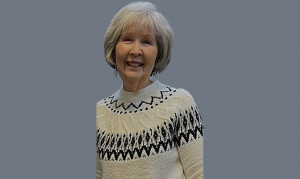When I was a younger man, just beginning my ministry, an older gentleman took me under his wing and gave me a warning and some advice. He said, “The profession you are entering means that you are going to receive more criticism than you can possibly imagine.” That was the warning.
The truth is that I had no idea what I was getting into. I didn’t attend church on a regular basis until the summer of my 15th year and, even then, I attended alone, either walking or hitching a ride to the church a couple of miles away.
Mom and Dad had been churchgoers at some point in time but either they got out of the habit or something happened that caused them not to return. Every Sunday, I went to church.
All I knew about church was what I saw on Sundays. The pastor, a wonderful man, preached interesting sermons, always had an open door, and seemed to be well-respected. From where I sat, he had a problem-free job.
Even when I became a youth minister in two different churches, I really didn’t understand the warning that my older friend gave to me. Until I actually was a pastor, I didn’t receive a great deal of criticism.
And then it came. Boy, did it come! Had it not been for the advice he gave me, I think I would have drowned in discouragement long ago.
The gentleman’s advice came in two parts. The first was this: “There are only two types of criticism that you are going to receive. The first is criticism which is justified. When you receive that type, then you need to listen to it and try to do something about it.”
I think that type of criticism is the hardest to receive. Most people, pastors included, feel that they are saying or doing the right things. When someone challenges one’s thinking, behaviors, decisions, or actions, it means that we have to entertain the possibility that we are wrong. If we are wrong, and are wise, we have to change or modify, even if it is embarrassing.
In one church I served, I discovered that I was given the nickname “Slick” behind my back. It wasn’t a compliment. It came because, in my desire to avoid controversy, I avoided taking stands that might bring me into disagreement or conflict with others in the church — especially leaders. The result was that I was seen as wishy-washy and spineless.
I had to change and learn to stand my ground and express my opinions, even if it was uncomfortable. Now, I am occasionally criticized for being too opinionated and unyielding. There’s just no pleasing some folks.
The second part of his advice was this: “The other type of criticism you will receive is that which is unjustified. You are not bound to change, but you do have to listen to it and assume that the person bringing it has your best interests at heart.”
The problem with unjustified criticism is that the person offering it often believes that they are 100 percent right. It can be a delicate matter. But assuming that the person is your friend and not your foe still makes even this type easier to hear.
The older friend then said, “Whether the criticism is justified or unjustified, God still let it come to your ear. Therefore, all criticism that you receive was first filtered through the hands of God so you have to receive it as such.” Easier said than done, I must admit.
Still, I want to hear what people have to say, even if it might be difficult. I asked a man recently to share with me where he felt I was going wrong. He said, “I don’t want to hurt you.”
I assured him that I was the one asking and that I would appreciate his honesty. So he shared his thoughts with me. While I didn’t feel that everything he shared was something I could change, I did find some valuable nuggets, and I am endeavoring to be a better man and a better pastor.
But what if the critics are not out to build up but to tear down? Baltasar Gracian said, “A wise man gets more use from his enemies than a fool from his friends.” Oscar Wilde said, “I choose my friends for their good looks, my acquaintances for their good characters, and my enemies for their good intellects.”
Even those that we perceive as, or may actually be, our adversaries sometimes can say things, hurtful though they may be, that will benefit us.
It is not the criticism that will make or break us. It’s what we do with it.
[David Epps is the pastor of the Cathedral of Christ the King, Sharpsburg, GA (www.ctkcec.org). He is the bishop of the Mid-South Diocese which consists of Georgia and Tennessee (www.midsouthdiocese.org) and the Associate Endorser for the Department of the Armed Forces, U. S. Military Chaplains, ICCEC. He may contacted at [email protected].]












Leave a Comment
You must be logged in to post a comment.